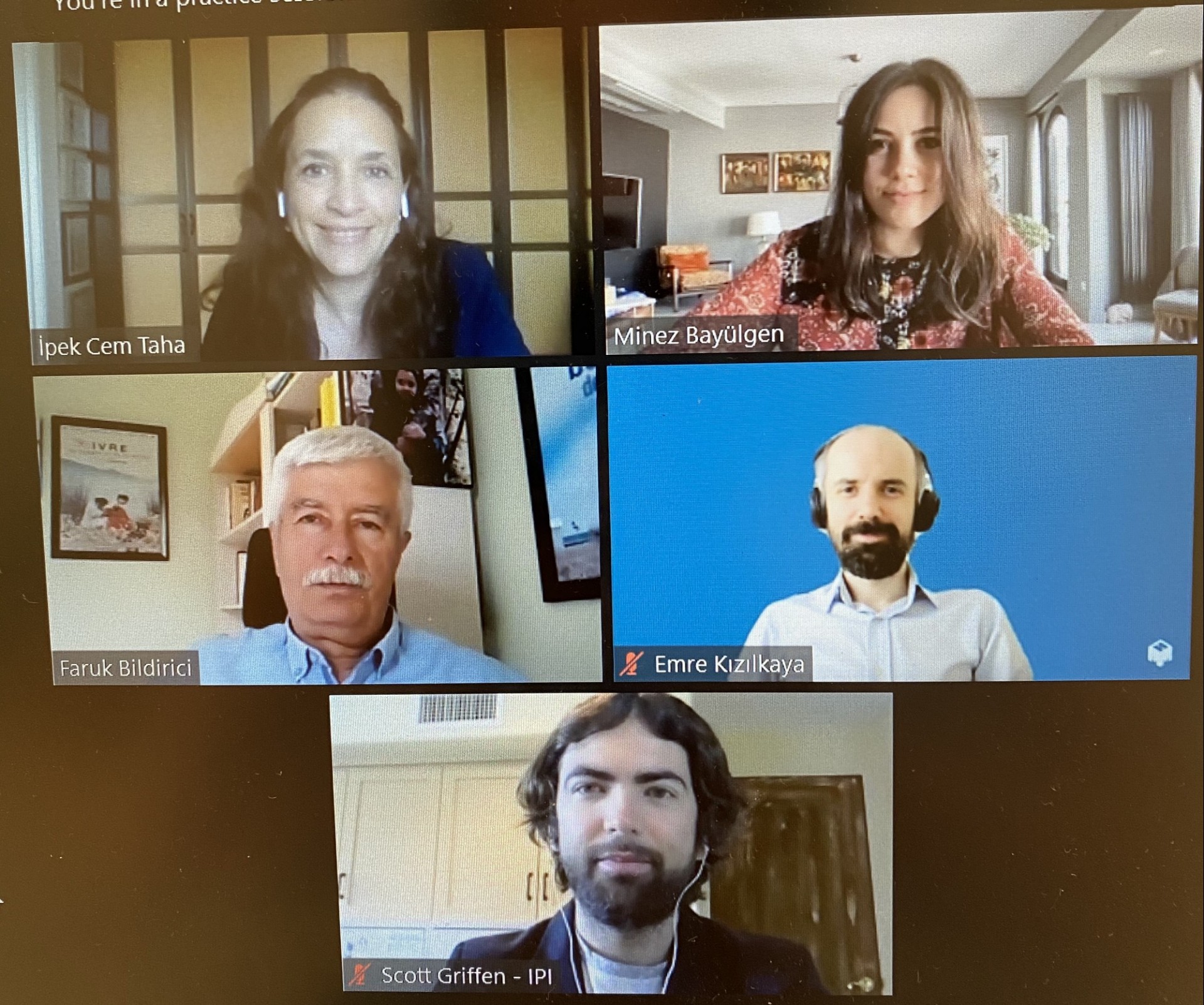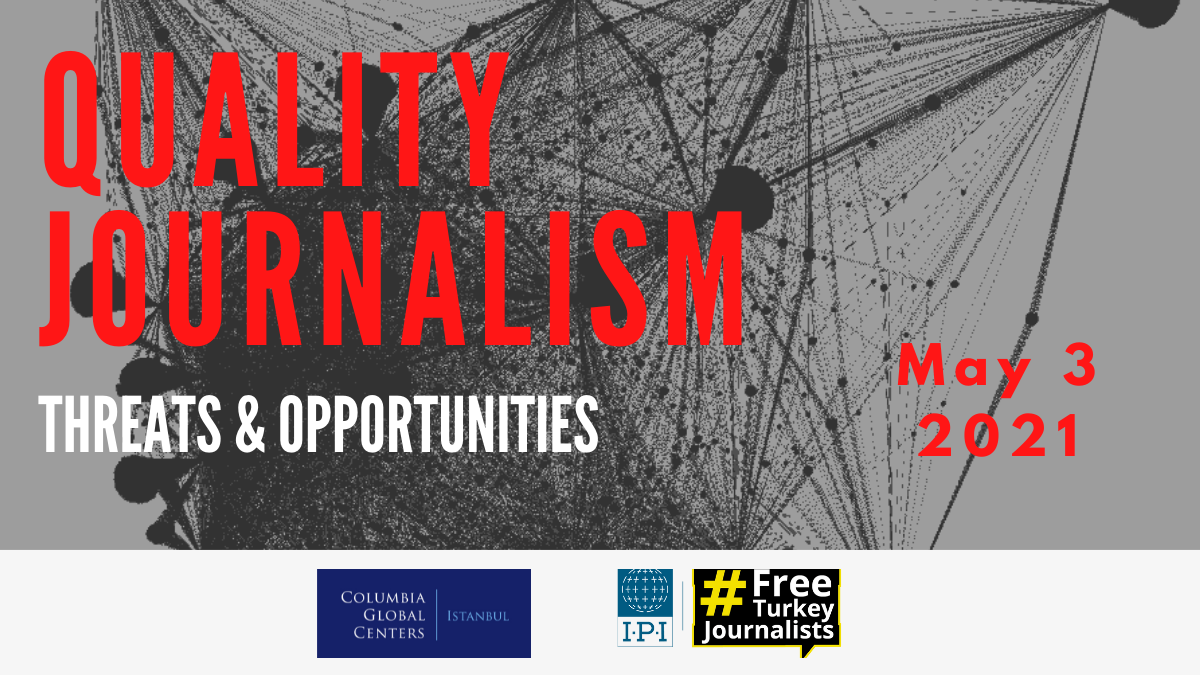Quality Journalism: Threats and Opportunities
On World Press Freedom Day, May 3rd, Columbia Global Centers | Istanbul in collaboration with the International Press Institute (IPI) organized a webinar on “Quality Journalism: Threats and Opportunities,” featured the speakers Scott Griffen, Deputy Director, IPI; Emre Kızılkaya, Turkey National Committee Vice Chair, Senior Researcher, IPI; Faruk Bildirici, Journalist and Media Ombudsman; Minez Bayülgen, Editor, Kapsül News; and İpek Cem Taha, Director, Columbia Global Centers | Istanbul. The panel discussed a range of issues, including the development of journalism amid political, social, and technological developments in the world, press freedom violations, the ongoing business model crisis, the status of Turkey’s independent media, and the future of journalism and the threats to its integrity and opportunities for its growth.
Scott Griffen talked about how authoritarian regimes strive to prevent journalists from reporting around the world by arresting journalists, removing media licenses, and controlling news through media capture strategies. He shared his concerns about the fact that repressing journalism without any consequences would be a widespread phenomenon. Hence, he called for an urgent collective response by the international community, including states and civil society actors to prevent this trend from becoming a dominant one. He concluded his talk by saying that the room for hope and opportunities lies in the digital platforms, yet we should create sustainable business models and search for ways to keep this digital space free and a favorable one for people who endeavor to provide quality journalism.
Emre Kızılkaya presented the findings of the IPI Turkey Digital Media Report: ‘The New Mainstream’ is Rising (And It Seeks Support) which was published in February 2021. The report contains the findings of an extensive study on digital capacity, impact, and needs of independent journalism in Turkey. Based on the report findings, dozens of journalists remain in Turkey’s jails in 2020, with hundreds are on trial with baseless indictments that demand heavy imprisonment and hefty fines. Authorities cut the ad revenues and issue millions of liras in financial penalties targeting newspapers and broadcasters over their critical reporting.
In his speech, Emre gave many examples on how journalists try to survive under stringent conditions in Turkey by comparing the performance and reach of independent journalists with those of pro-government media and also talked about the impact of the policies of internet giants such as Google, Facebook, Twitter, and Youtube on the viability and potential of digital news producers.
Faruk Bildirici briefly mentioned the history of journalism and media in Turkey since the 1980s and how state institutions have gained more and more power in controlling and regulating the media environment. He stressed that this authoritarian atmosphere wiped the reporters out of journalism as their capacity for questioning has been immensely undermined. In addition, he counted the distortion of the facts by certain state institutions and the absence of a union for journalists as some other threats to the quality of journalism today. Finally, he argued that we could reach quality journalism if we first set its principles regardless of the conditions like underfunding.
Minez Bayülgen talked about the lack of resources in doing quality journalism such as funding, equipment, and transport facilities. She also stressed that digital journalism comes with its own struggles, especially finding resources like donors. While these difficulties prevail, she suggested that we should convince our readers that news deserves to be paid and journalism is a profession, much more like nursing, teaching, or engineering. She said that if we could change this perception we could enhance the quality of journalism.

